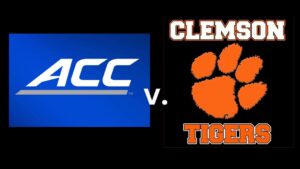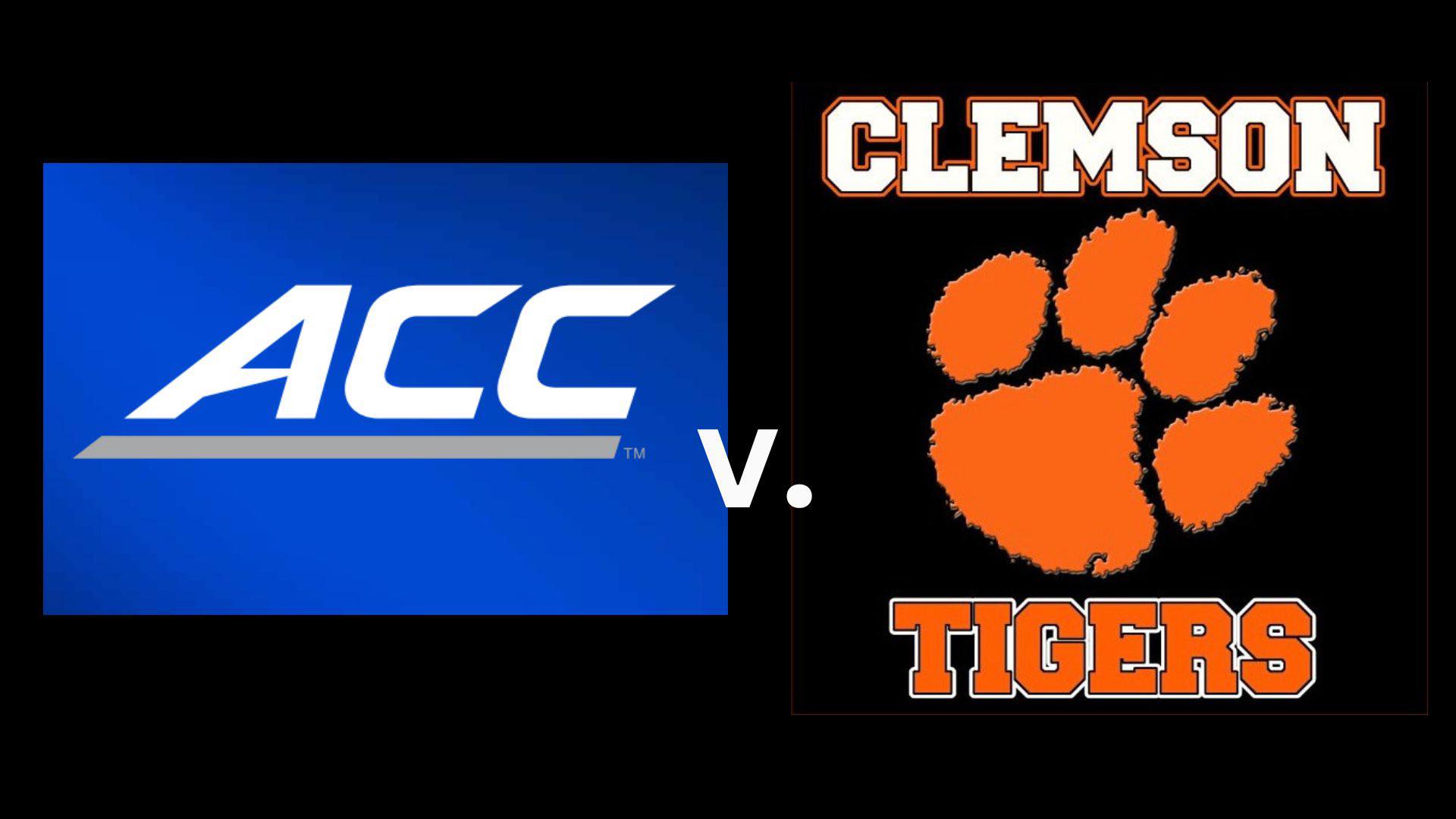If this feels all too familiar, it should. A member school of the Atlantic Coast Conference in court with its lawyers arguing against those representing the conference. Whether it is FSU v. ACC, Clemson v. ACC, The ACC v. Florida State, or The ACC v. Clemson, it is like “déjà vu all over again, to paraphrase the great social philosopher Yogi Berra. It was Clemson’s turn to present a motion to dismiss a lawsuit on Tuesday.
Clemson’s Motion to Dismiss
The hearing before Judge Louis Bledsoe III in Mecklenburg County Court in the matter of ACC v. Clemson was for the defendant to give oral arguments on its motion to dismiss the lawsuit brought by the conference. Without a dismissal, the university’s attorneys asked for a stay of the proceedings.
Clemson wants to get out of the conference’s media Grant of Rights. The contract, revised and signed by all schools in 2016 binds the media rights for each school’s home games to the ACC through 2036. Clemson has a legal process ongoing in Pickens County, South Carolina.
The ACC has filed a breach of contract countersuit in the Complex Contracts Court, a special division of the Mecklenburg Court system to deal with convoluted civil matters.
Sounds Familiar
The issue of the moment is a fight over jurisdiction. Clemson claims, as did FSU, that a court in North Carolina should not be ruling over contractual matters involving a public school in another state.
Tuesday’s proceedings mirrored similar hearings earlier this year when Florida State tried to get the ACC lawsuit against the school for breach of contract dismissed. Judge Bledsoe presided over that case as well. He denied FSU’s motion, and the school is in the process of appealing to the Supreme Court of North Carolina.
Clemson’s attorneys tried to paint a different picture than what Bledsoe heard with the Florida State case.
Lead attorney for the school, K. Alan Parry, cited Bledsoe’s ruling in the FSU matter as cause to grant Clemson’s motion. In the FSU case in North Carolina, the ACC had filed the breach of contract suit a day before the Florida State Board of Trustees had even approved its lawsuit against the conference.
First to File Argument
Judge Bledsoe, in his ruling in favor of the conference, acknowledged the “First to File” principle. The first to file in their jurisdiction has a sort of home-field advantage in terms of jurisdiction.
Parry noted that, with Judge Bledsoe’s ruling in mind, Clemson was the first to file in this case, beating the ACC to its local filing clerk’s office by about two days. Judge Bledsoe responded, saying the ACC knew that Florida State intended to file suit to get out of its contract. He said the ACC had no prior knowledge of Clemson’s intentions and therefore could not be the first to file.
In fact, attorneys for both sides addressed the discussions between the two sides that had been ongoing before the lawsuits were filed. Discussions on the details of the contracts and the potential to sign non-disclosure agreements were ongoing early in the year. But as Clemson changed lead attorneys, the ACC alleges that the school went silent in its communications with the conference. It then went straight to litigation.
The Terms
Parry also acknowledged, in distinguishing this case from the FSU case, that Clemson is not contesting the Grant of Rights itself. Instead, he says, the school is contesting particular elements of the agreement. Florida State has asked that the entire Grant of Rights be invalidated.
Clemson also contends that the exit clause to leave the ACC is punitive. The membership contract calls for a fee roughly three times the current operating budget of the contract. That would come to about $140 million, and it would not include the school’s ownership of its media rights.
The ACC’s lead counsel, James Cooney III (who has been the conference’s lead counsel in each of these court matters), argued that Judge Bledsoe needed to remain consistent with his rulings. He said that granting Clemson’s motion would negate what he had already ruled in the Florida State case in North Carolina.
One Court?
Cooney suggested that there needed to be one venue for all of these suits and contractual issues. He argued that a court in South Carolina or Florida could not impose rulings that could be unilaterally enforced for any schools throughout the conference.
He also said ESPN, which is a partial co-litigant with the ACC, could not be compelled by a court in Florida or South Carolina. Cooney argued, however, that a North Carolina court could rule on all the contract matters since it is where the ACC is headquartered.
From the bench, Judge Bledsoe also asked why it would not make sense for there to be a consolidation of all the actions regarding any of the school litigants and the ACC into one court.
Ruling Coming Soon
Judge Bledsoe has also consistently tried to stay abreast of the details in the other court cases. He asked to be updated on the status of the proceedings in Leon County, Florida, and in Pickens County, South Carolina.
As is his nature, he did not rule from the bench. He said he would issue a written ruling on Clemson’s motions and would try to do so before Friday, July 12th. That is the date of the first hearing in Clemson v. ACC. The conference has filed a motion to dismiss in that case.







